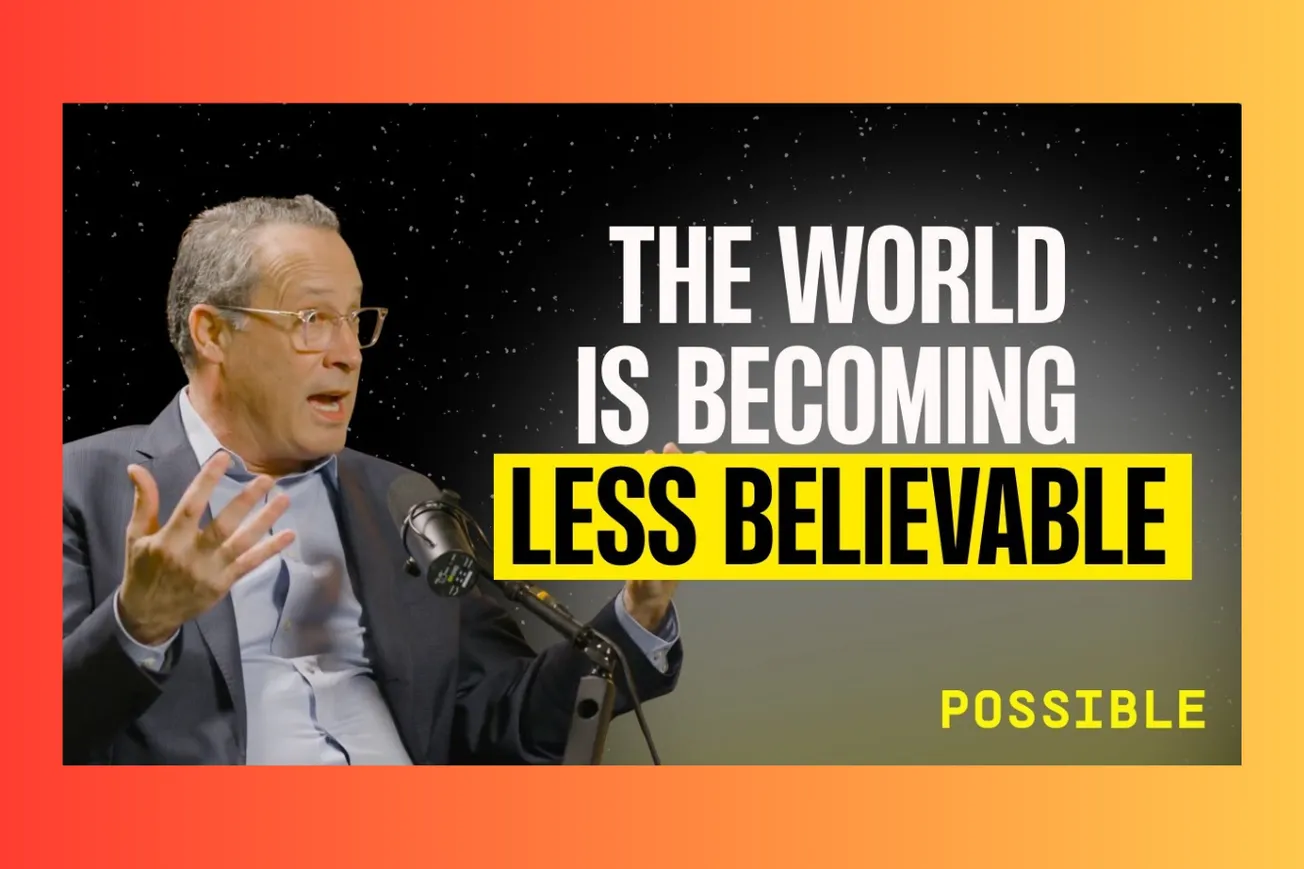Table of Contents
Libraries emerge as critical institutions for navigating AI's promises and perils, ensuring equitable access to technology while maintaining epistemic integrity.
Key Takeaways
- Libraries represent the most trusted institutions in society, positioning them uniquely to guide AI adoption responsibly
- Digital divide issues affect millions, with students sitting outside closed libraries to access WiFi for homework
- AI hallucinations and false citations are already appearing at library reference desks, signaling urgent trust issues
- Partnerships between libraries and AI companies must prioritize certified information over speed and scale
- Economic disruption from AI requires institutions that can provide both technological access and human community
- Libraries can transform into comprehensive education and technology centers while preserving their core mission
- The future depends on unleashing human capacity through trusted institutions that bridge technological gaps
Timeline Overview
- Opening Discussion — Introduction to library leadership and biographical background of working in South Africa on education reform
- Library Mission Evolution — Transformation from book repositories to comprehensive community education centers serving diverse populations
- Digital Divide Reality — Discovery of widespread broadband access issues affecting students' ability to complete basic homework assignments
- AI Integration Challenges — Early encounters with AI companies seeking to scan collections and the emergence of hallucination problems
- Trust and Truth Framework — Discussion of libraries' role as epistemic institutions in an age of information uncertainty
- Future Vision — Optimistic outlook on human capacity and the potential for libraries to lead technological transformation
The Biographical Foundation: Education as Liberation
Libraries today are led by individuals who understand education's transformative power through lived experience, particularly in contexts where systemic oppression limited access to quality learning opportunities.
The South African experience reveals a fundamental truth about education's potential. Working in anti-apartheid education during the 1980s civil war, creating residential colleges for students denied quality schooling, demonstrated that "one year of quality education can undo 12 years of purposefully terrible education."
- Human minds possess remarkable capacity for recovery and achievement when given proper educational resources and supportive environments, regardless of previous limitations or disadvantages.
- The transition from college presidency to library leadership reflects recognition that libraries serve as educational institutions with unique advantages: universal trust, minimal regulation, and presence in every neighborhood including the poorest.
- Modern library leaders bring interdisciplinary experience spanning international development, higher education, and community organizing to address 21st-century challenges facing information institutions.
- The personal connection to libraries—getting first library cards at age four, walking miles to reach public library branches—informs leadership approaches that prioritize access and community service.
- Leadership philosophy centers on "doing good in the world through education and learning" rather than treating libraries merely as book depositories or cultural museums.
Beyond Books: Libraries as Community Infrastructure
Libraries function as comprehensive education centers offering programming from pre-K through adult learning, including homework help, college guidance, English language instruction, and computer skills training for everyone.
The transformation from traditional book lending to community education reflects changing neighborhood needs. Libraries now provide two million educational program spots annually, serving diverse populations across economic and cultural backgrounds in every neighborhood.
- Elimination of late fees demonstrates commitment to access over revenue, recognizing that fines primarily prevent low-income families from using library services rather than encouraging book returns.
- Integration of affordable housing above library buildings maximizes community benefit while addressing urban housing shortages, creating unprecedented models for public-private partnership in civic infrastructure.
- Libraries serve as "third places" for human community in an increasingly isolated digital world, providing essential spaces for people to "sit with each other" when other institutions fail to offer genuine connection.
- Trust levels for libraries exceed other public institutions because "nobody ever thought libraries would change," creating unique opportunities for innovation without regulatory interference or public suspicion.
- The most diverse city on the planet requires library collections that reflect community needs rather than imposed cultural standards, shifting from "what we think everyone should read" to responsive collection development.
The Digital Divide Crisis: Infrastructure as Civil Rights
Millions of New Yorkers lack basic broadband access at home, creating educational and economic disadvantages that compound existing inequalities in housing, employment, and social mobility.
Students sitting on library steps after closing time, using aging laptops to complete online homework assignments through WiFi bleeding from closed buildings, illustrates the stark reality of digital exclusion in wealthy urban areas.
- School districts assign online homework while knowing significant percentages of students cannot access internet at home, creating systematic barriers to educational achievement based on family economic status.
- Telecommunications executives dismiss affordability concerns by claiming families "make wrong life choices" rather than acknowledging structural economic barriers to digital access, revealing industry disconnect from community realities.
- Pilot programs providing free broadband to 2,000 low-income residents demonstrate scalable approaches to treating internet access as essential utility rather than luxury consumer product.
- Citizens Band Radio and mesh networking technologies offer potential solutions for community-controlled broadband infrastructure that bypasses traditional telecommunications monopolies while serving underresourced neighborhoods.
- Partnership development with state governments and federal agencies enables libraries to function as internet service providers, expanding their traditional role as information access points into comprehensive digital infrastructure.
AI's Double-Edged Promise: Power and Peril
- AI represents potentially the best educational technology in human history, offering personalized tutoring capabilities that could democratize access to high-quality individualized instruction previously available only to wealthy families.
Reference librarians report unprecedented numbers of patrons requesting citations for non-existent books and articles generated by AI systems, indicating widespread confusion between authentic and fabricated information in research contexts.
- Major newspapers published AI-generated summer reading lists featuring made-up books by real authors, demonstrating how AI's impressive presentation can overcome human skepticism about obviously false information.
- AI companies approached libraries offering payment for scanning entire collections without providing guarantees about accuracy, fact-checking, or appropriate use of curated materials in training data.
- The scale and speed of AI responses create "false trust" because impressive technological presentation convinces users that information must be accurate, bypassing normal critical evaluation processes.
- Libraries possess certified collections that could serve as training data for more accurate AI systems, but partnerships require guarantees about truth verification and intellectual property respect.
- Current AI development prioritizes scale over accuracy, creating business incentives that conflict with libraries' institutional commitment to reliable information and public service rather than profit maximization.
Epistemological Guardianship: Truth in the Age of Hallucination
- Libraries occupy unique social positions as non-governmental public institutions dedicated to truth-seeking, positioning them to advocate for accuracy standards that market forces alone cannot guarantee.
The fundamental challenge involves maintaining "connection to reality" when technological capabilities exceed verification processes, requiring institutional commitment to truth over convenience or profit margins.
- Truth-seeking mechanisms developed through centuries of scholarly and scientific practice should not be abandoned simply because new technologies can produce convincing-sounding information at unprecedented speed and scale.
- Collective epistemology—how society determines what counts as knowledge—faces disruption from AI systems trained on unverified internet content rather than curated, fact-checked materials from trusted institutions.
- Libraries can help create AI systems based on verified book collections rather than random internet scraping, offering partnership opportunities that serve both technological development and information quality goals.
- The "hallucination problem" in AI reflects deeper issues about business models that prioritize engagement over accuracy, requiring institutional voices advocating for truth as valuable social asset rather than market commodity.
- Training both librarians and the public to approach AI outputs with critical thinking skills parallels traditional information literacy education, treating all sources as arguments requiring evaluation rather than authoritative pronouncements.
Economic Transformation and Educational Equity
- The "cognitive industrial revolution" promises massive productivity gains while creating guaranteed human costs through job displacement and economic transition, requiring proactive planning for workforce adaptation and social support.
Wealthy families choose expensive AI-integrated private schools where children use AI for two hours daily while spending remaining time on cooking, debate, ethics, and human interaction, revealing class-based approaches to technology integration.
- Public education systems risk creating two-tier outcomes where affluent students receive human instruction supplemented by AI while low-income students face AI-only education that lacks essential human elements like creativity, critical thinking, and ethical reasoning.
- Libraries can partner with school systems to provide AI training and access while ensuring technology serves human development rather than replacing essential educational experiences like collaborative learning and mentorship.
- The transition period between job elimination and job creation creates "dislocation" that disproportionately affects working-class communities, requiring institutions that can provide both technological training and economic support during career transitions.
- Universal access to AI tutoring through libraries could replicate advantages traditionally available only to families who can afford private tutors, potentially reducing rather than increasing educational inequality.
- Success requires ensuring that AI enhancement reaches all students rather than becoming another advantage concentrated among already-privileged populations, demanding intentional equity-focused implementation strategies.
Future Vision: Human Capacity and Institutional Resilience
- Human ingenuity, creativity, and problem-solving capacity represent irreplaceable resources that no machine can substitute, requiring institutional support for developing and nurturing these capabilities across all communities.
Libraries exemplify what's possible when society commits to universal access: hundreds of buildings operating daily with millions of dollars in resources provided free to anyone regardless of documentation, economic status, or background.
- The next 15 years offer potential breakthroughs in health, energy, transportation, and human capacity that could transform global experience if institutions successfully navigate technological transitions while preserving human values.
- Optimism about technological progress must be coupled with realistic planning for transition costs and equity concerns, requiring institutions that can bridge gaps between technological possibility and social implementation.
- Climate change and global population growth demand creative solutions that emerge from unleashing human problem-solving capacity rather than restricting access to tools and resources based on economic privilege.
- The combination of libraries' trusted status, comprehensive community presence, and educational mission positions them uniquely to lead equitable AI adoption while preserving human connection and critical thinking skills.
- Success depends on maintaining institutional commitment to truth, access, and human development even when market pressures favor speed, profit, and technological determinism over careful consideration of social consequences.
Common Questions
Q: How are libraries adapting to serve communities in the AI age?
A: Libraries are becoming comprehensive education and technology centers while maintaining their role as trusted guardians of accurate information.
Q: What is the digital divide and why does it matter for AI access?
A: Millions lack basic broadband at home, preventing access to online education and future AI tools that require internet connectivity.
Q: How can libraries help address AI hallucination problems?
A: Libraries offer certified collections as training data and teach critical evaluation skills for approaching all information sources, including AI outputs.
Q: What economic impacts should communities expect from AI adoption?
A: Significant job transformation with guaranteed transition costs, requiring institutions that provide both technological training and community support during changes.
Q: Why are libraries uniquely positioned to guide AI development?
A: Libraries are society's most trusted institutions with universal community presence, non-profit mission, and commitment to accurate information over market pressures.
Libraries will either lead the responsible integration of AI into community life or watch technological progress deepen existing inequalities while undermining social trust. The choice requires immediate action to ensure human values guide technological development rather than being swept aside by market forces prioritizing speed over accuracy and profit over public benefit.





